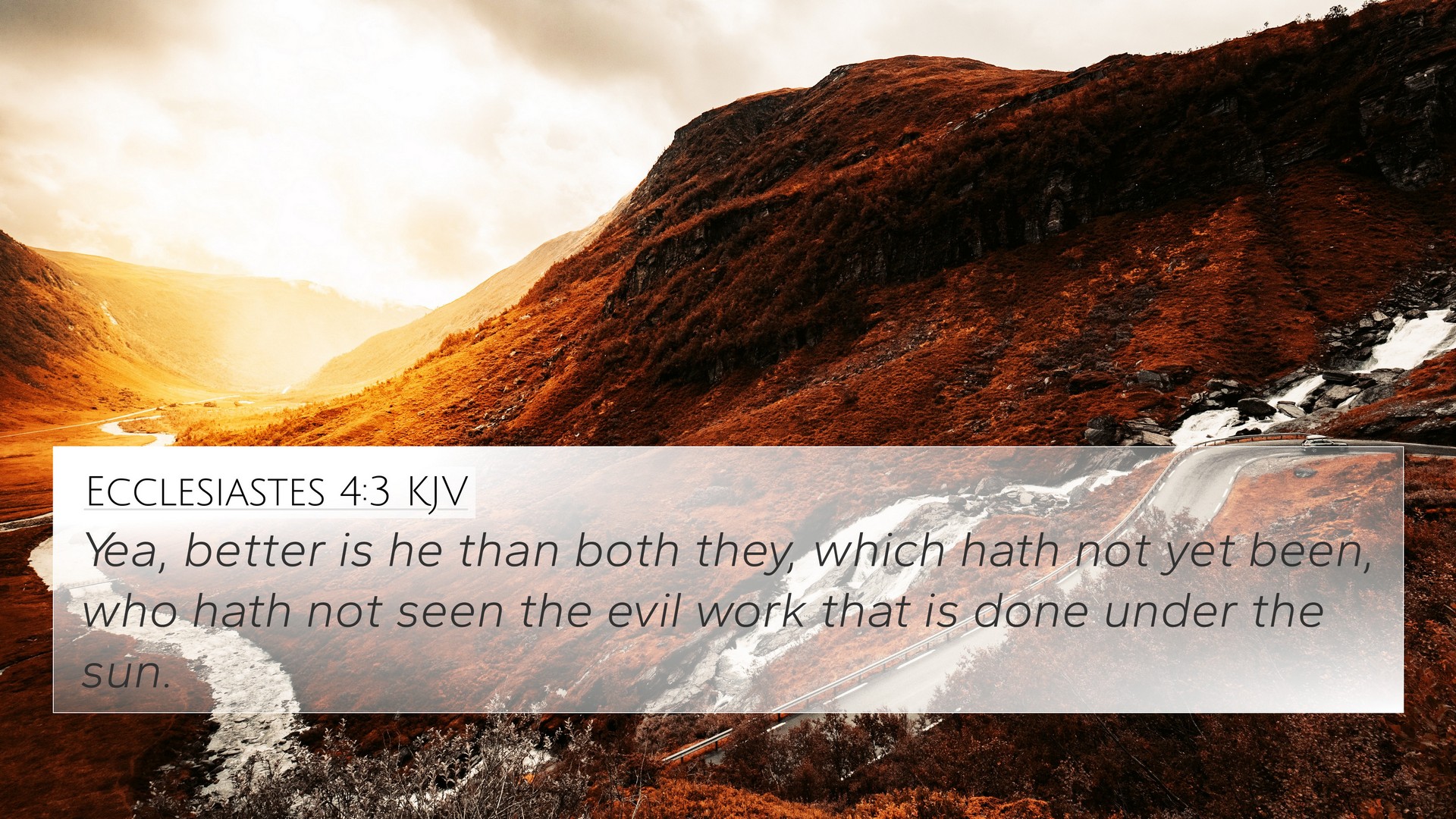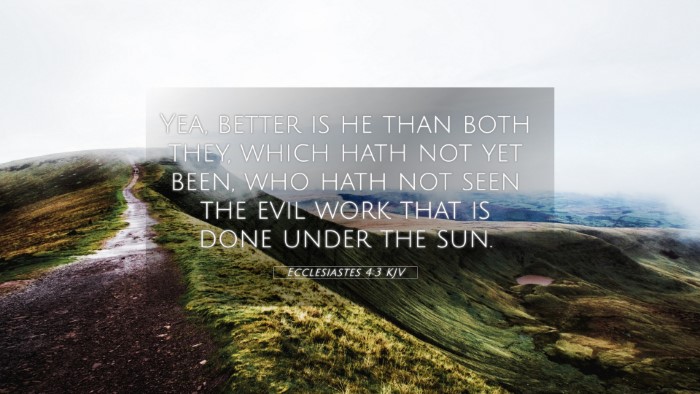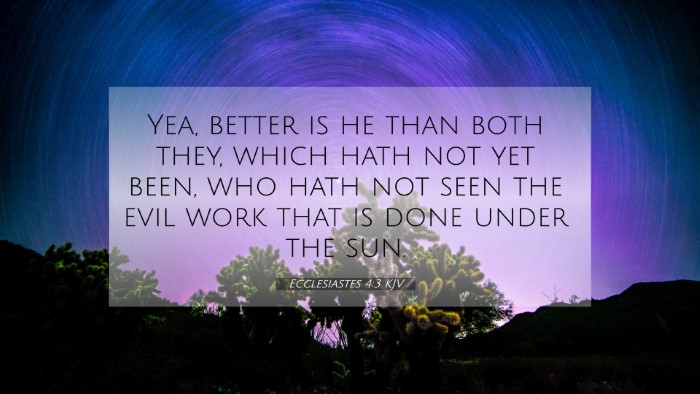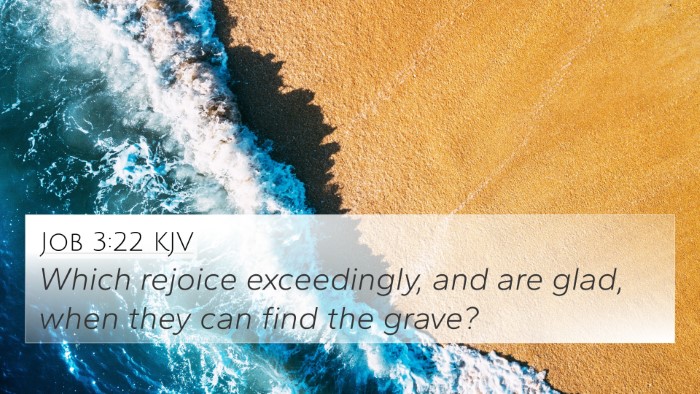Old Testament
Genesis Exodus Leviticus Numbers Deuteronomy Joshua Judges Ruth 1 Samuel 2 Samuel 1 Kings 2 Kings 1 Chronicles 2 Chronicles Ezra Nehemiah Esther Job Psalms Proverbs Ecclesiastes Song of Solomon Isaiah Jeremiah Lamentations Ezekiel Daniel Hosea Joel Amos Obadiah Jonah Micah Nahum Habakkuk Zephaniah Haggai Zechariah MalachiEcclesiastes 4:3 Similar Verses
Ecclesiastes 4:3 Cross References
Yea, better is he than both they, which hath not yet been, who hath not seen the evil work that is done under the sun.
Uncover the Rich Themes and Topics of This Bible Verse
Listed below are the Bible themes associated with Ecclesiastes 4:3. We invite you to explore each theme to gain deeper insights into the Scriptures.
Ecclesiastes 4:3 Cross Reference Verses
This section features a detailed cross-reference designed to enrich your understanding of the Scriptures. Below, you will find carefully selected verses that echo the themes and teachings related to Ecclesiastes 4:3 KJV. Click on any image to explore detailed analyses of related Bible verses and uncover deeper theological insights.
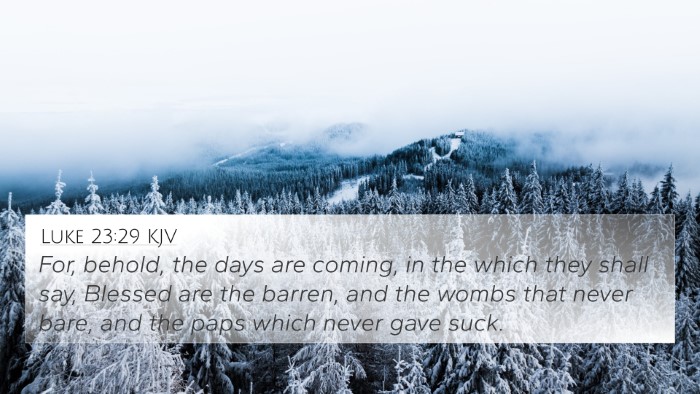
Luke 23:29 (KJV) »
For, behold, the days are coming, in the which they shall say, Blessed are the barren, and the wombs that never bare, and the paps which never gave suck.

Matthew 24:19 (KJV) »
And woe unto them that are with child, and to them that give suck in those days!
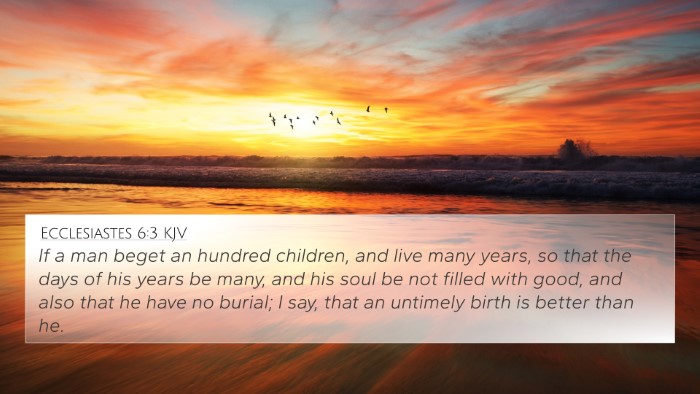
Ecclesiastes 6:3 (KJV) »
If a man beget an hundred children, and live many years, so that the days of his years be many, and his soul be not filled with good, and also that he have no burial; I say, that an untimely birth is better than he.
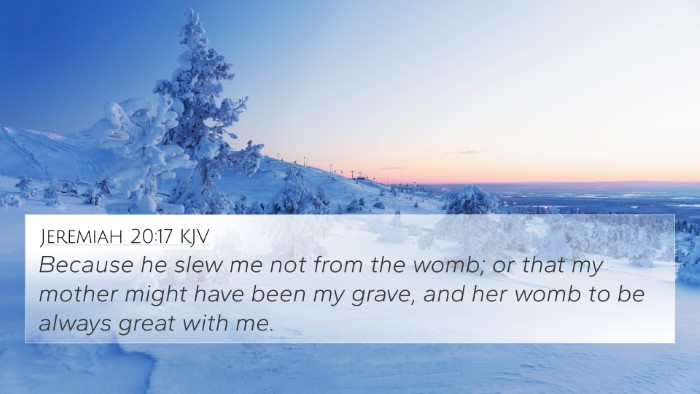
Jeremiah 20:17 (KJV) »
Because he slew me not from the womb; or that my mother might have been my grave, and her womb to be always great with me.

Jeremiah 9:2 (KJV) »
Oh that I had in the wilderness a lodging place of wayfaring men; that I might leave my people, and go from them! for they be all adulterers, an assembly of treacherous men.
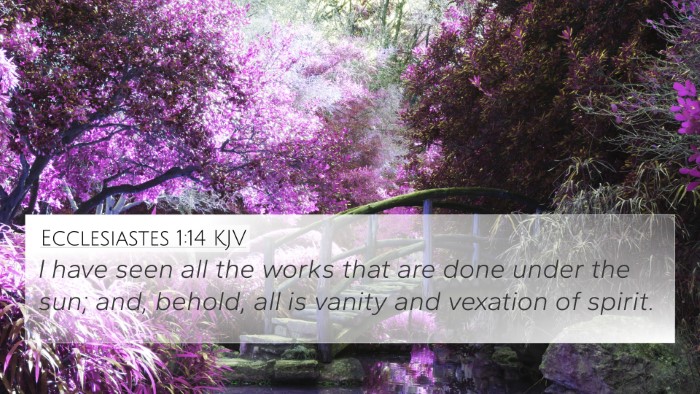
Ecclesiastes 1:14 (KJV) »
I have seen all the works that are done under the sun; and, behold, all is vanity and vexation of spirit.
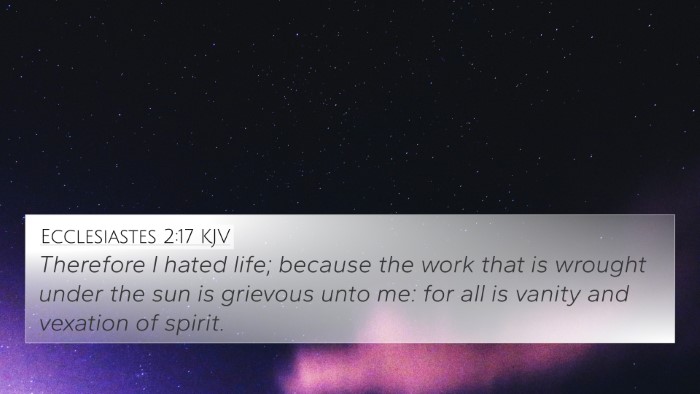
Ecclesiastes 2:17 (KJV) »
Therefore I hated life; because the work that is wrought under the sun is grievous unto me: for all is vanity and vexation of spirit.
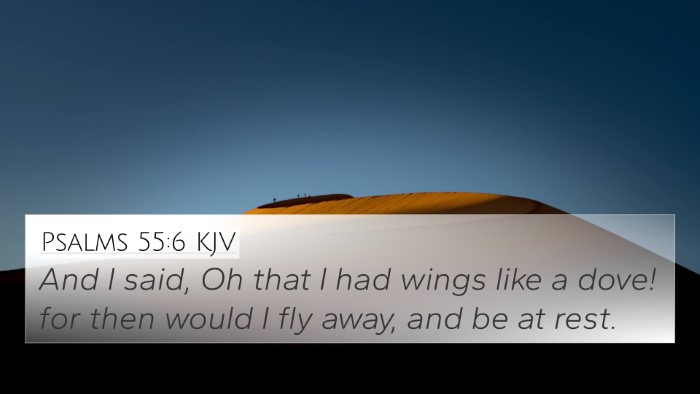
Psalms 55:6 (KJV) »
And I said, Oh that I had wings like a dove! for then would I fly away, and be at rest.
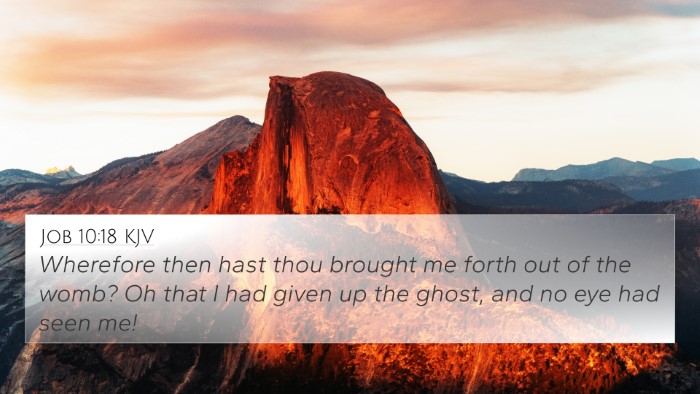
Job 10:18 (KJV) »
Wherefore then hast thou brought me forth out of the womb? Oh that I had given up the ghost, and no eye had seen me!
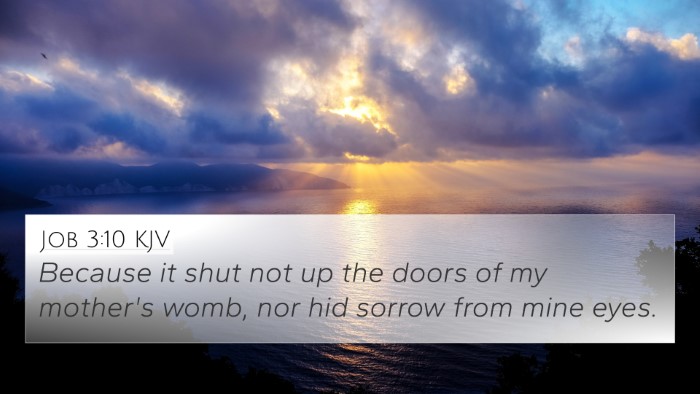
Job 3:10 (KJV) »
Because it shut not up the doors of my mother's womb, nor hid sorrow from mine eyes.
Ecclesiastes 4:3 Verse Analysis and Similar Verses
Understanding Ecclesiastes 4:3
Ecclesiastes 4:3 states, "Yea, and I deemed it more blessed than they both, to be in the womb of the earth, than that it should be born, to live in completed labor, because there is no evil work nor vain thing among them."
Verse Context and Significance
This verse reflects the themes of life, death, and the futility of earthly accomplishments. It presents a profound commentary on the nature of existence, suggesting that being born into a world filled with labor and sorrow may not be as desirable as remaining in the womb, safe and sheltered.
Commentary Insights
The insights derive from well-respected public domain commentaries:
- Matthew Henry: He emphasizes the bittersweet nature of life and suggests that the trials of existence can overshadow the joy of life itself. Henry points out that many are born into a life filled with troubles, encouraging readers to consider whether life’s struggles indeed outweigh the blessing of existence.
- Albert Barnes: In his view, Barnes interprets the verse as highlighting the advantage of never experiencing the pains of the world. He draws attention to the deep sorrow often tied to human experiences, suggesting that the unborn escape these tribulations.
- Adam Clarke: Clarke provides a philosophical angle, pondering the existential implications of this verse. He offers insight into how the verse can be understood as a call to reflect on what it means to live a fulfilling and impactful life rather than a life merely marked by physical existence.
Bible Verse Cross-References
To further understand Ecclesiastes 4:3, consider the following cross-references:
- Job 3:11-12: A lamentation about birth and life, expressing similar sentiments about the struggles of existence.
- Psalms 139:13-16: Speaks to the intricacies of life before birth, emphasizing God's involvement in creation.
- Hebrews 9:27: Addresses the finality of life and inevitable death, complementing the themes of Ecclesiastes.
- Romans 8:18: Discusses the sufferings of this present time compared to future glory, resonating with the anguished perspective of Ecclesiastes.
- Ecclesiastes 1:2: Begins the book with the declaration of vanity, establishing a foundational theme that connects back to 4:3.
- Matthew 11:28-30: Jesus invites the weary to find rest, contrasting with the toil described in Ecclesiastes.
- Isaiah 53:3-5: Describes the suffering servant, aligning with the themes of hardship present in Ecclesiastes.
Thematic Connections Between Bible Verses
The connections between these verses can provide deep insights into the themes present in Ecclesiastes. By linking ideas across different texts, one gains a broader understanding of the Scriptural narrative regarding suffering, purpose, and existence.
Tools for Bible Cross-Referencing
To effectively engage in a cross-reference Bible study, consider utilizing:
- Bible Concordance: A comprehensive guide to locating verses and themes quickly.
- Bible Cross-Reference Guide: Resources that connect similar themes and passages across the Bible.
- Cross-Referencing Bible Study Methods: Techniques for discovering relationships between verses.
- Bible Reference Resources: Books and tools designed for deeper explorations of Scripture connections.
Conclusion
Ecclesiastes 4:3 serves as a profound reminder of the complexities of life. By understanding its meaning through the insights of various commentaries and its connections to other scripture, one can appreciate the depth of wisdom contained within the Bible. By engaging in thoughtful comparative Bible verse analysis and utilizing the recommended tools, individuals can deepen their understanding of Biblical themes and truths.
